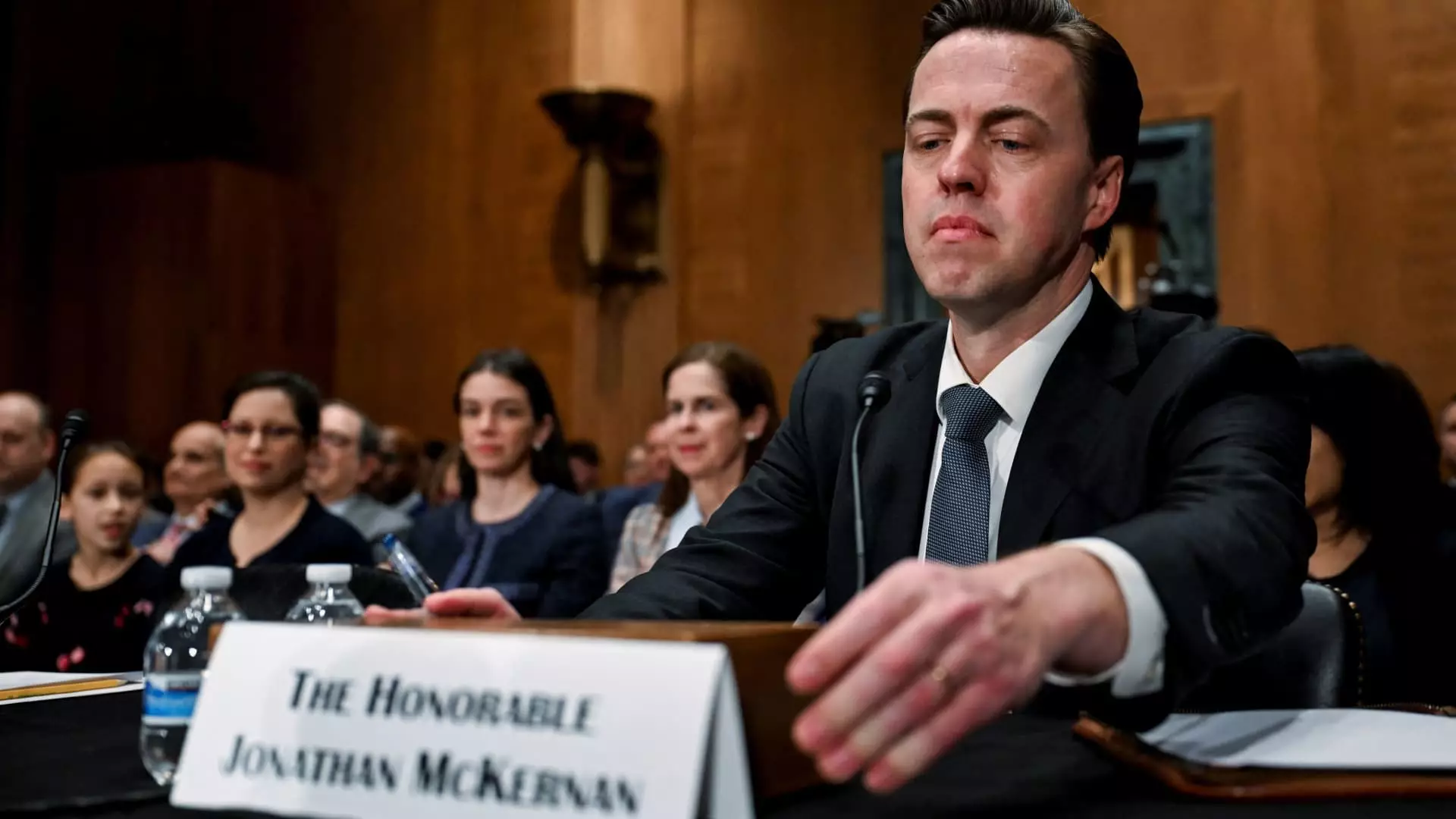The recent nomination of Jonathan McKernan by President Donald Trump to lead the Consumer Financial Protection Bureau (CFPB) has elicited a spectrum of reactions. As the CFPB confronts significant challenges—including potential downsizing and shifts in its operational philosophy—the critical dialogue surrounding McKernan’s confirmation is revealing of the agency’s precarious state. Amidst daunting inquiries by Congress, particularly from Democratic senators, one must consider the implications of McKernan’s leadership style, his judicial commitments, and the broader political context that frames this appointment.
In his defense before the Senate, McKernan articulated a clear commitment to fulfilling the CFPB’s statutory obligations, asserting he would “fully and faithfully” uphold consumer protections. His declaration is noteworthy, especially in light of his professional background as a corporate banking lawyer and a former member of the Federal Deposit Insurance Corporation. His qualifications, which include witnessing the unraveling of the financial system during the 2008 crisis, bolster his credibility. McKernan’s observation that consumers should be the focus of regulatory practices reinforces an important narrative in American finance—that consumer welfare cannot be overlooked in policy decisions.
However, the challenges he faces are monumental. Explicitly critical of his predecessor, Rohit Chopra’s tenure, McKernan argued that the CFPB has acted in a “politicized manner,” thereby diminishing its effectiveness. He lamented a “crisis of legitimacy” that could compromise the agency’s foundational mission of consumer protection. These remarks underscore a core tension: while McKernan seeks to reposition the agency, the circumstances surrounding his appointment introduce questions about the future direction of the CFPB.
The political atmosphere surrounding the CFPB raises alarms about its potential future. Reports indicate that acting CFPB Director Russell Vought has led the bureau towards a path of drastic restructuring, including the closure of its headquarters and workforce reductions. Democratic senators, particularly Elizabeth Warren, voiced concerns regarding these developments and pressed McKernan on whether he would maintain necessary operational components, including advocacy programs for seniors and military veterans. McKernan’s assurances reflect an understanding of statutory mandates; however, the ongoing turmoil within the agency begs the question: can he genuinely assert independence in the face of overpowering political currents?
Warren’s pointed remarks during McKernan’s confirmation hearing brought forth an undeniably stark narrative—one in which McKernan could find himself relegated to a skeletal version of the CFPB, reduced to a mere shadow of its intended purpose. This metaphor of “the No. 1 horse at the glue factory” encapsulates the tension between political ambitions and consumer welfare, suggesting that McKernan’s promising words may not be enough to resist external pressures aimed at dismantling the agency.
The unfolding scenario within the CFPB highlights a broader discourse regarding the future of financial regulation in the United States. As legislators scrutinize McKernan’s commitment to preserving consumer protection structures, it is crucial to ponder the implications of dismantling regulatory frameworks that have historically aimed to protect vulnerable populations. McKernan’s articulation of a need for authorities to be refocused and held accountable opens a discussion about the effectiveness of regulation within an evolving financial landscape.
Yet with ongoing moves from the Trump administration to restrain the CFPB’s scope, the agency faces a battleground in which its legitimacy and functionality are continually under scrutiny. Whether McKernan, if confirmed, can reverse the tide through accountability and a reinvigorated focus on consumer rights remains to be seen. Ultimately, the Senate’s decision on McKernan’s nomination will reverberate beyond the walls of the CFPB—affecting millions of consumers across the country as they navigate an increasingly complex financial environment.
As McKernan’s nomination heads toward confirmation, the future of the Consumer Financial Protection Bureau—and consumer protection in America—hangs precariously in the balance of political will, organizational sustainability, and the enduring drive for accountability in financial regulation.

